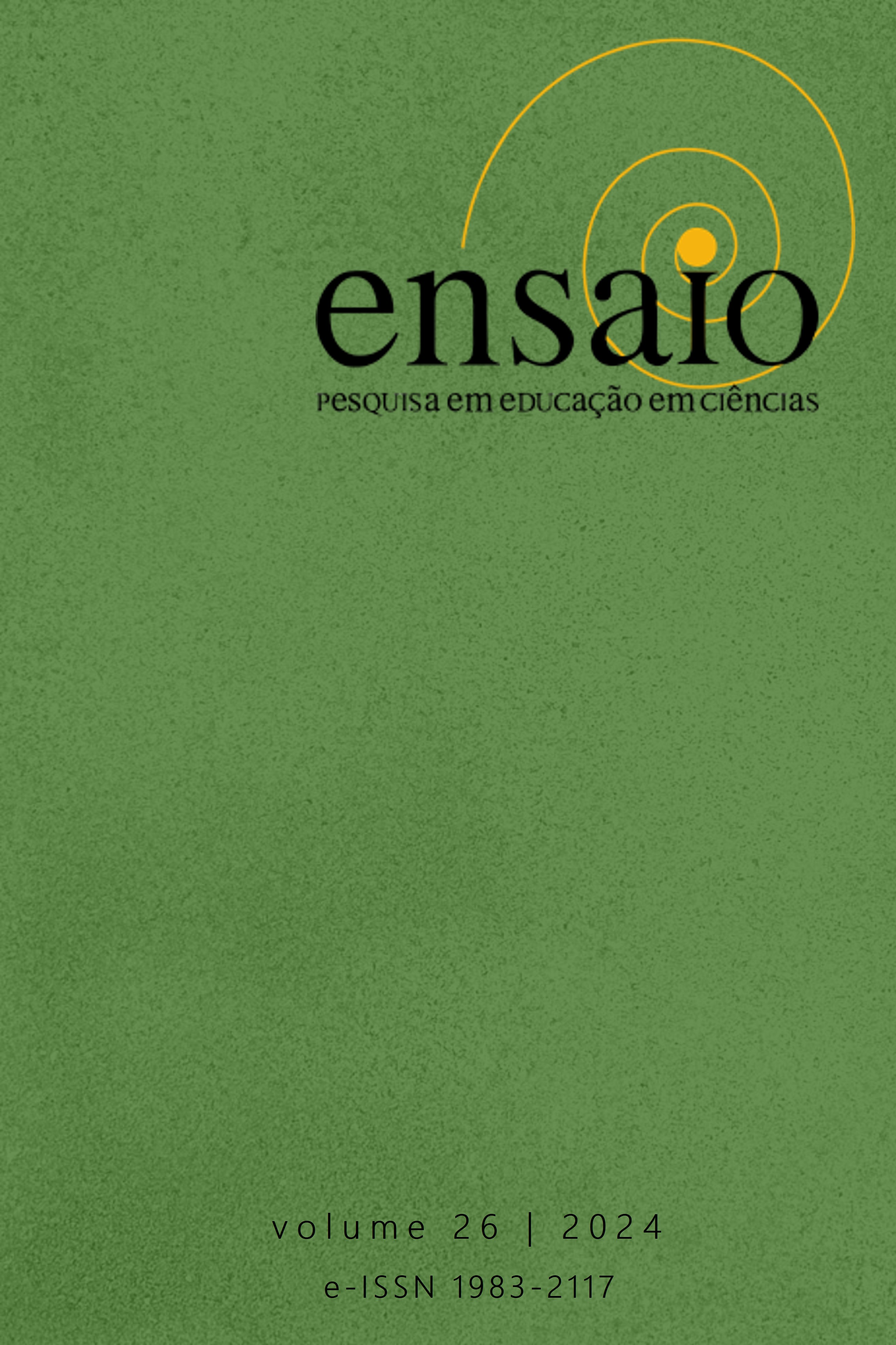ARTICLE-OPINION: SCIENTIFIC BIOGRAPHY AS POSSIBILITY TO VALUE A MORE FEMININE AND BLACK CHEMICAL SCIENCE
ARTIGO-PARECER: BIOGRAFIA CIENTÍFICA COMO POSSIBILIDADE PARA A VALORIZAÇÃO DE UMA CIÊNCIA QUÍMICA MAIS FEMININA E NEGRA
DOI:
https://doi.org/10.1590/1983-21172022240169Keywords:
Metodologia, valores, evidências, historiografiaAbstract
In this paper, I present the evaluation process of the article “Scientific biography as possibility to value a more feminine and black Chemical Science” through an analysis of its axiological, methodological, factual, and historiographical domains. In axiological terms, I present the evidence and the train of thought that led me to understand that the paper, despite being intended as an exploratory research, demonstrated a previous hypothesis, that the biography of a black female scientist could promote discussions about race and gender in teacher training. In the methodological domain, I explore the inconsistencies that this previous hypothesis had for the development of the methodology. In the factual domain, I discuss the importance of presenting data classified by gender, race, and geographic location. When it comes to history and historiography, I present the discussions with the authors regarding the construction of teaching material that was not presented to me in the first version. I close the work by indicating that the final version has become more coherent and its hypothesis has been attenuated. The work presents above average quality and methodological rigor, in my opinion, and the process was extremely interesting, generating pertinent questions to our area of research as a whole.
Downloads
References
Ausubel, D. P. (1968). Educational Psychology: A cognitive view. Nova York: Holt, Rinehart & Winston.
Damásio, F.; & Peduzzi, L. O. Q. (2017). História e Filosofia da Ciência na Educação Científica: Para quê?Ensaio - Pesquisa em Educação em Ciências, v. 19, e2583.
Driver, R. (1989). Students’ conceptions and the learning of science. International Journal of Science Education, v. 11, p. 481.
Freire, P. (1987). Pedagogia do oprimido, 17a ed. Rio de Janeiro: Paz e Terra.
Freire P. (1996). Pedagogia da autonomia. 25a ed. Rio de Janeiro: Paz e Terra.
Kanim, S. & Cid, X. C.(2020). Demographics of physics education research. Physical Review Physics Education Research, v. 16, n. 2.
Kragh, H. (1987). An introduction to the historiography of science. Cambridge University Press.
Kragh, H. (2000). Max Planck: the reluctant revolutionary. Physics World.
Laudan, L.(1984) Science and values: the aims of science and their role in scientific debate. University of California Press.
Lederman, N. G. (2007). Nature of Science: Past, Present, and Future. In: Abell, S. K.; Appleton, K.; Hanuscin, D. (eds). Handbook of Research on Science Education. Routledge.
Longino, H. (1990). Science as social knowledge: values and objectivity in scientific inquiry. Princeton: Princeton University Press.
McComas, W. et al. (1998). The nature of science in science education: an introduction. Science & Education, v. 7, n. 6, p. 511.
Martins, A. F. P. (2007). História e Filosofia da Ciência no ensino: Há muitas pedras nesse caminho… Caderno Brasileiro de Ensino de Física, v. 24, n. 1, p. 112.
Matthews, M. (1995). História, filosofia e ensino de ciências: a tendência atual de reaproximação. Caderno Brasileiro de Ensino de Física, v. 12, n. 3, p. 164.
Matthews, M. R. (2012). Changing Focus: From Nature of Science to Features of Science. In: Khine, M. S. (ed). Advances in Nature of Science Research. Springer.
Moura, B. A. (2016). Newton versus Huygens: como (não) ocorreu a disputa entre suas teorias para a luz. Caderno Brasileiro de Ensino de Física, v. 33, n. 1, p. 111.


